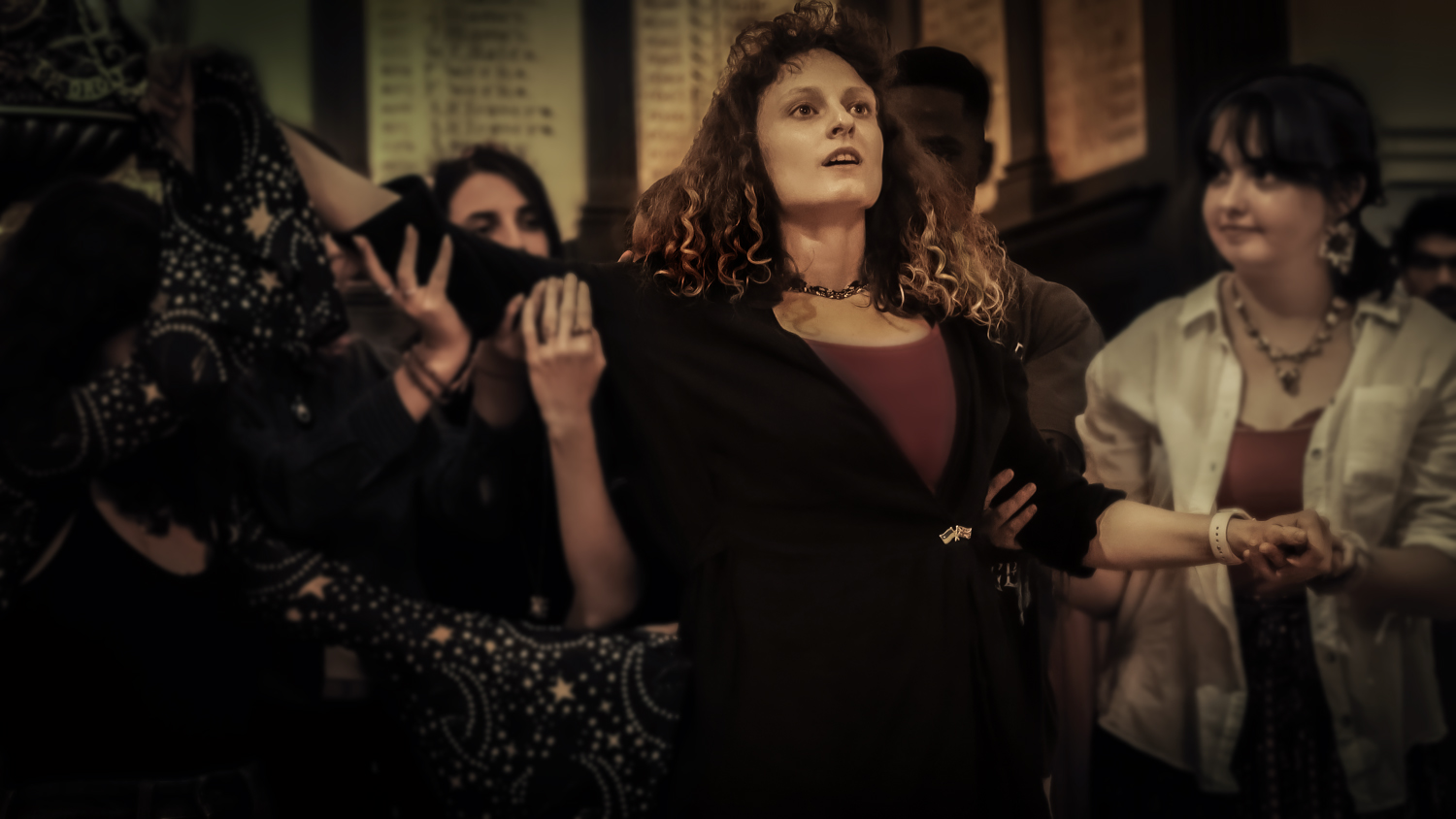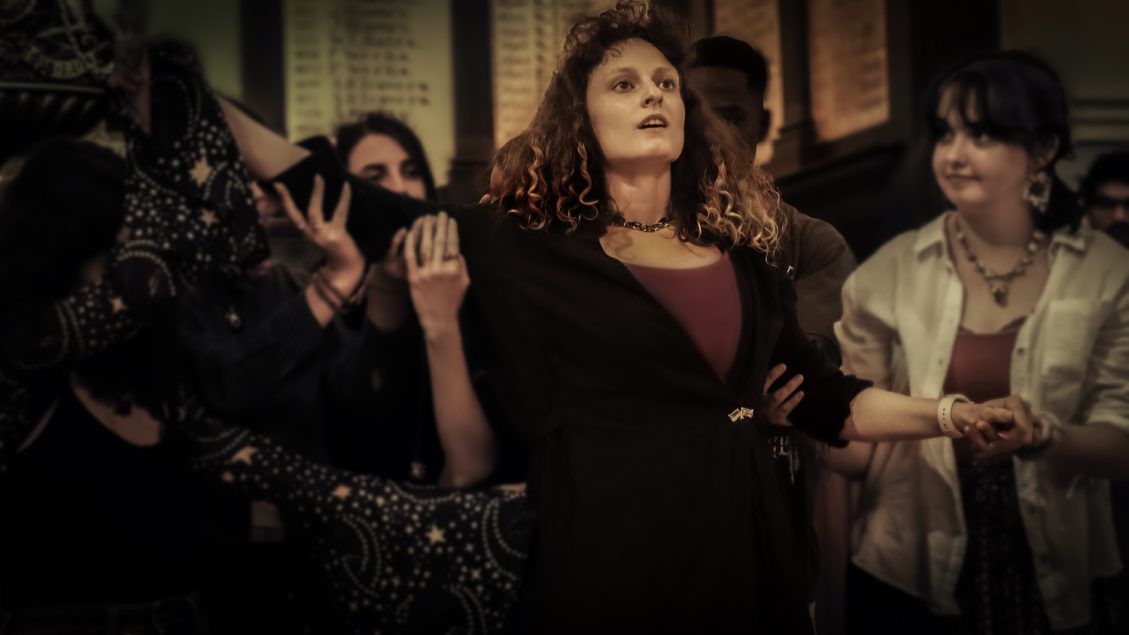Robert Golden’s opening talk for Art Youth and A Shared Peace
June 23 2025
We are delighted to see you here
…it is no small thing you decided to come;
it’s a sign of your curiosity and openness
and believe me, you are very welcome.
I’m offering some ideas for these coming days….
To begin with I will quote a mentor of my intellect and my soul:
Albert Camus, French novelist and existential philosopher who wrote:
“For us, Europe is a home of the spirit,
where for the last twenty centuries
an amazing adventure of the human spirit has been occurring.
It is a privileged arena
in which Western people struggle against the world,
against the gods,
and against ourselves, which today is reaching its climax.”
For many years I have photographed and filmed the social, political,
economic and cultural aspects of our shared world
but now as I view our decent into authoritarianism,
endless wars, heartless cruelty
and the climate crisis.
I think that perhaps all the discussions about left and right,
this or that political party,
this or that ideology
seem to have been a somewhat fruitless journey for me.
Perhaps I should have been thinking more broadly –
that is, I should have been thinking about the nature of our species.
Now what do I see?
In the vast middle of our complex societies,
including the middle classes,
there are masses of people too overworked, too poor, too exhausted, too uneducated,
too ill informed, too hungry or too self-obsessed or too oppressed to care about
or even to think about the conditions of their and other’s lives,
or they are too drowned in their oppressor’s propaganda
to think beyond the limits of their own lives.
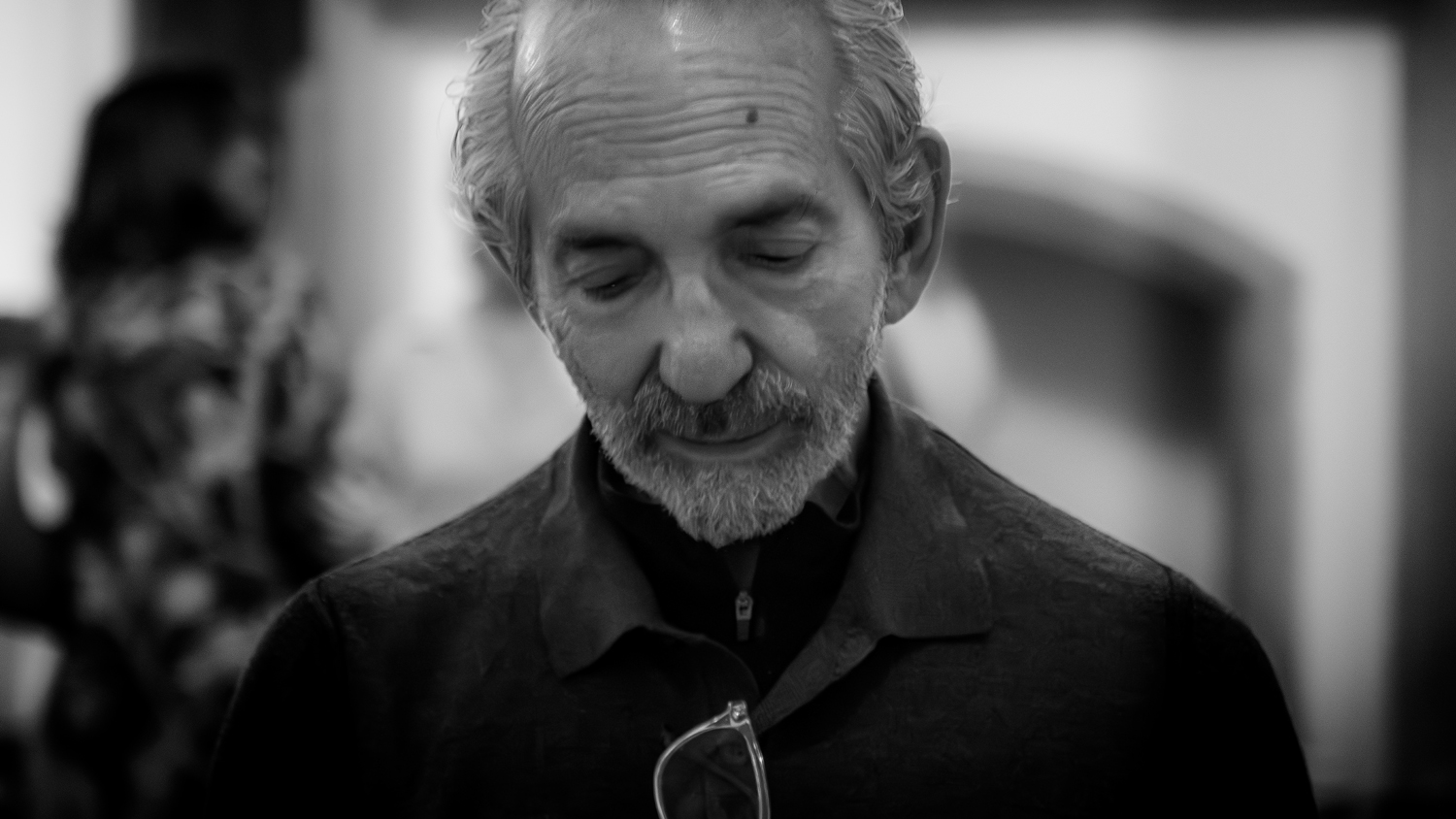
Then there are what I believe to be a very small percentage of humankind
I think of as deviant psychopaths
who relentlessly seek power and wealth…
who hold irrational grudges against others,
who are Narcissist in love their own reflection,
those who make no connection between their actions
and the tragic consequences of their actions…
and those politicians who only seek to line their pockets
rather than to serve the people who elect them.
And then there are us,
we who care not only for our loved-ones and ourselves
but also for strangers, all strangers:
regardless of nationality, race, religion, gender, abilities
or whatever other differences there may be between us.
We embrace them because we understand they are us.
With that in mind
I want to tell you a tale about the 3 acts of our current historical drama…
that drama we are living through together.
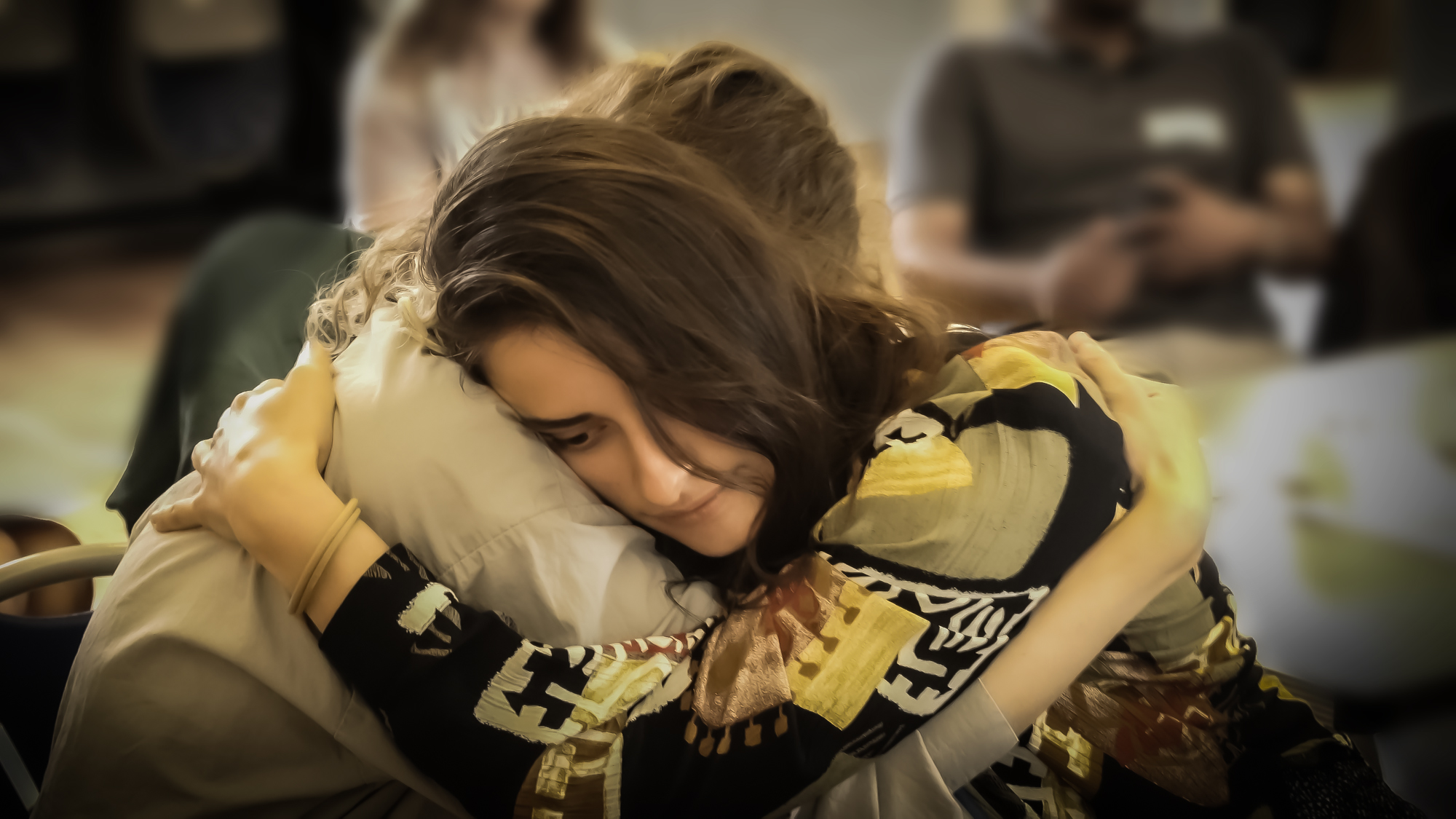
In the FIRST ACT
we come to understand how power and wealth assault us day-by-day
and what that does to our consciousness,
or may I say, to our perceived truths.
This makes our struggle for truth central to our beings.
I’ll now jump to the THIRD ACT:
in which we have imagined and created a future society
of humane social, political, cultural structures
and we will have decided whether they will be for profits or for people,
for conformity or for curiosity,
and we will have determined
whether they will demand obedience or offer freedom.
Now back to the SECOND ACT:
We need to ask, ‘how do we get from the FIRST ACT,
our understanding of today
to our hoped for dream of THIRD ACT?’
We need to imagine that journey,
we need to give that imagined journey form and substance
through intellectual and creative actions.
How then do we manage that journey?
How do we describe that future for others?
How do we confront and overwhelm
the propaganda and media control of the status quo?
How do we live lives that are an example of that better world?
We need to be able to ignite a flame of clarity, truth
and especially hope for the future.
A better future hides within us.
Let me propose a starting point for our journeys
by coming to recognise this octet:
There is no democracy without equality;
there is no equality without justice;
there is no justice without freedom;
there is no freedom without truth;
there is no truth without knowledge;
there is no knowledge without curiosity;
there is no curiosity without empathy;
there is no empathy without kindness.
As you can understand,
my theory is that the entire structure of democracy
must rest upon a foundation of kindness
and it should not, and as history has witnessed,
it cannot rest upon a corrupting economic system
which is only concerned with grasping wealth from each other.
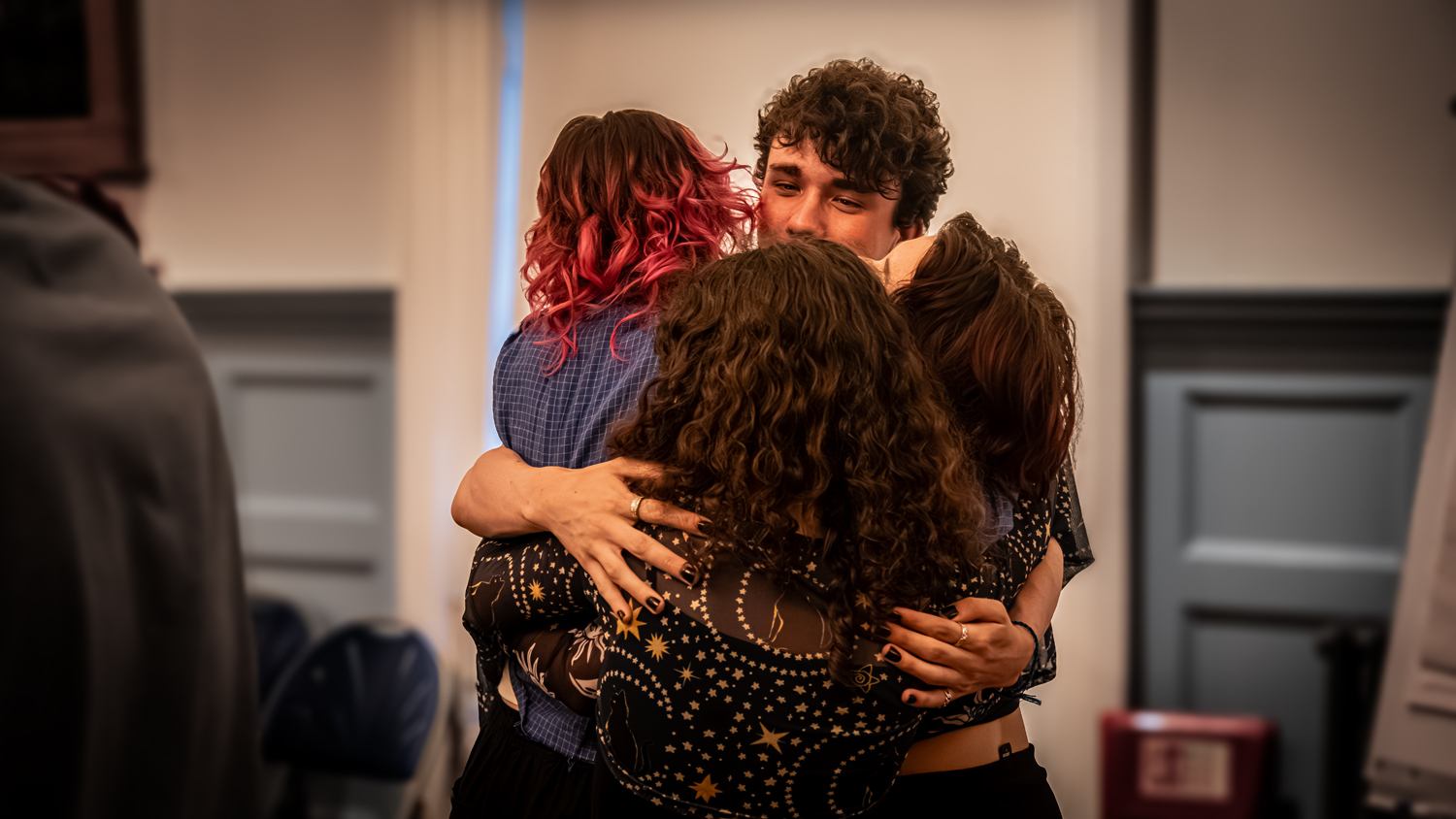
I propose that to create a better world ,
a truly democratic world that addresses the needs of all people.
the cornerstone of that new world
must be kindness.
Again, Albert Camus understood that
“in recognising the potential dignity of life
through people’s unstoppable struggle for freedom,
one can overcome life’s inherently absurd and tragic nature.”
And as Elif Shafak, the wonderful Anglo-Turkish writer said:
“we are surrounded by endless facts.
When we think what they mean we develop knowledge,
and then, when we consider that knowledge
combined with our life experiences,
our curiosity,
our humanity
and our kindness
we may find wisdom and in that,
we may find those peaceful ways to bring change.”
It is up to us to find wisdom,
It is up to us to bring peaceful change.
And now, having said all the above,
there are a number of questions we could begin to discuss.
1a Why do you believe what you believe to be true is true?
1b If you understand that you did not invent the building blocks
of your own truths, who did?
1c What is the intention of those who created those buildings blocks?
2 How do you confront them?
(There are often disagreements about how effective
using the facts of science and the indications of statistics
are to change people’s minds….
but I’m certain it is touching people’s hearts through storytelling
that offers more powerful tools than do logic, reason
scientific proofs, pie charts and stats.)
3a Do you recognise the role of storytelling in these processes?
3b If so you need to ask
‘what is a story?’
‘Why do we need stories?’
And ‘whose voice do you have when telling stories?
Thank you.
